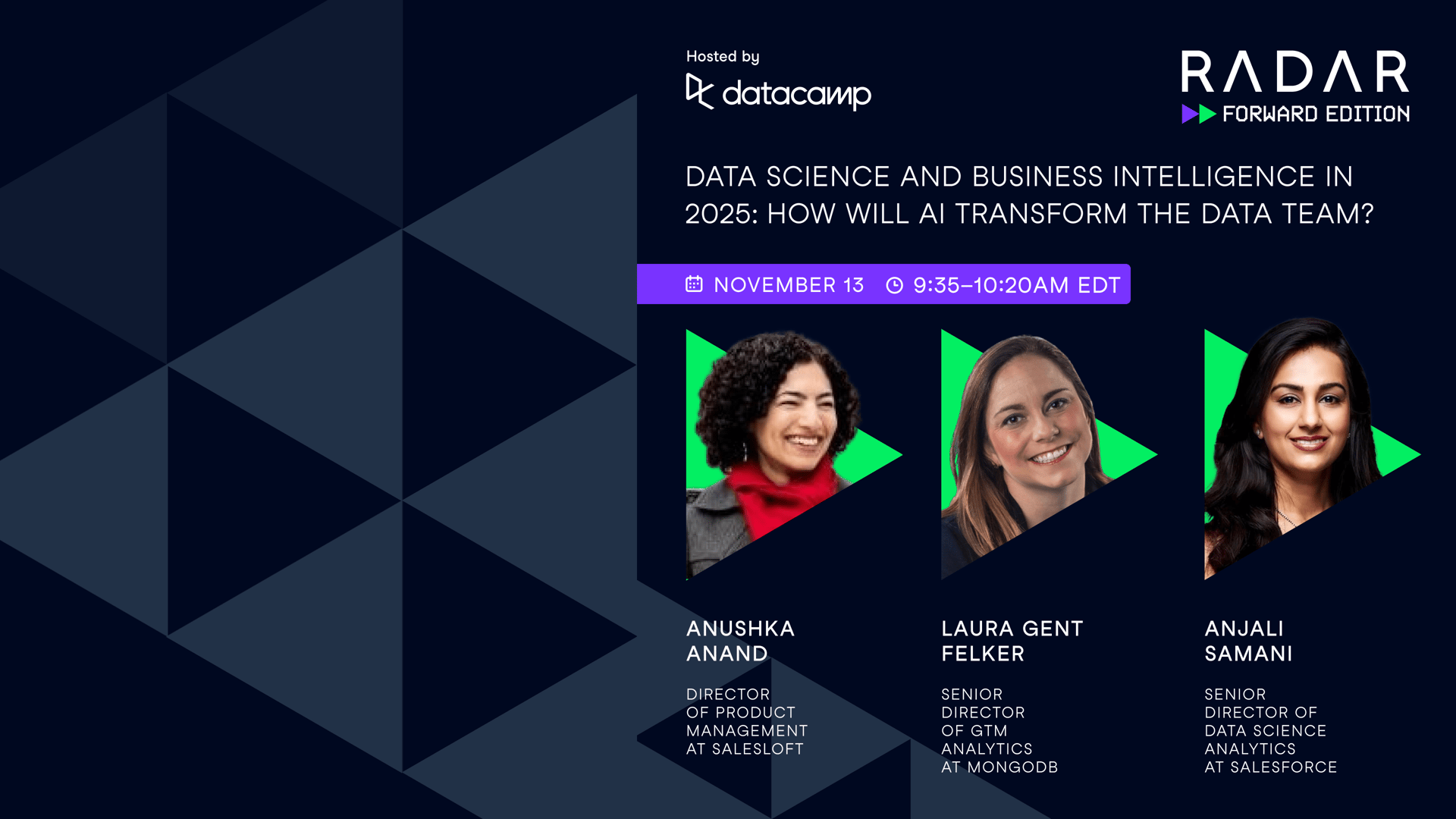Pular para o conteúdo principalSaiba Mais





Falantes



Laura Gent Felker
Director, Data Insights and Scalability at SalesForce
Treinar 2 ou mais pessoas?
Obtenha acesso à biblioteca completa do DataCamp, com relatórios, atribuições, projetos e muito mais centralizadosRelacionado
white paper
2022 Data Trends and Predictions
Read about 9 trends shaping data science in 2022 and beyondwebinar
Learning in the Age of AI: How Will AI Reshape the L&D Function in 2025?
Three industry experts discuss how AI is reshaping the L&D function, how to best drive AI literacy for the wider organization, and how learning teams can future proof their workflows for 2025 and beyond.webinar
The State of Data & AI Literacy in 2024
Join this webinar to learn how and which data & AI skills are becoming increasingly pervasive in organizations across industries, how leaders are adapting their teams and workforce to the era of data & AI literacy and more.webinar
Data Trends and Predictions 2022
9 major data science trends that will impact organizations in 2022 and beyond.webinar
How AI Can Improve Your Data Strategy
Find out how AI, ML, and data science can inform your data strategy.webinar
Unleashing Data Teams in 2023: Insights from data leaders
Ask a Hiring Manager — The Keys to Landing a Job in Data ScienceJoin 5000+ companies and 80% of the Fortune 1000 who use DataCamp to upskill their teams.
Loved by thousands of companies
